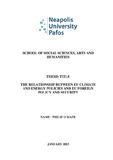| dc.description.abstract | Access to clean cooking energy remains a significant challenge globally, particularly in regions such as Sub-Saharan Africa, the Pacific Islands, and South Asia, where urban and rural disparities are most pronounced. In the Pacific Islands, rural areas continue to rely heavily on traditional biomass, exacerbating health and environmental issues. This study reviews trends in clean cooking energy access in the Pacific, emphasizing the stark differences between urban and rural regions. Through a comprehensive analysis of regional data, policy frameworks, and case studies, we identify barriers including limited infrastructure, high costs, and lack of awareness, which hinder the adoption of clean cooking technologies. To address these challenges, we examine the potential of biogas digesters as a renewable and sustainable solution. Biogas digesters not only provide clean energy but also offer significant benefits for public health, environmental conservation, and economic development. However, their successful deployment requires comprehensive policy interventions. This study proposes actionable recommendations: introducing targeted subsidies for rural households to reduce the high upfront costs of biogas systems, leveraging public-private partnerships to develop local supply chains, integrating clean cooking technologies into national energy strategies, and using community-based education programs to raise awareness about the health and economic benefits of clean energy. Furthermore, examples of successful policy frameworks, such as Fiji’s National Energy Policy 2023 and Tuvalu’s biogas pilot projects, illustrate the importance of aligning national plans with regional clean energy goals. By aligning with Sustainable Development Goal 7 (SDG 7), which advocates for universal access to affordable and clean energy, this study underscores the broader impact of clean cooking energy solutions on agriculture, business, education, healthcare, and transportation. Bridging the clean cooking energy gap is critical for advancing public health, fostering inclusive economic growth, and achieving sustainable development in the Pacific Islands. | en_UK |





